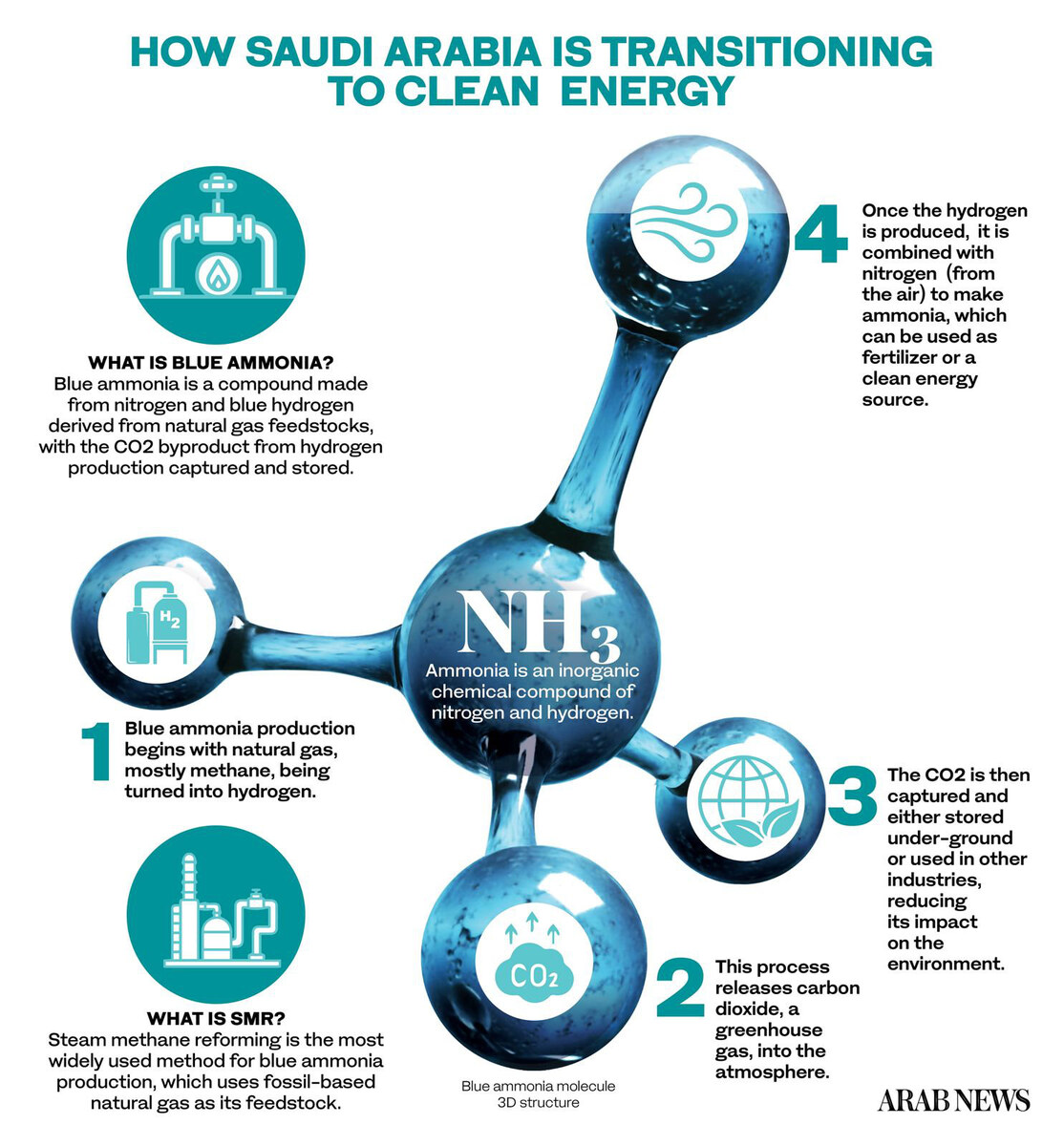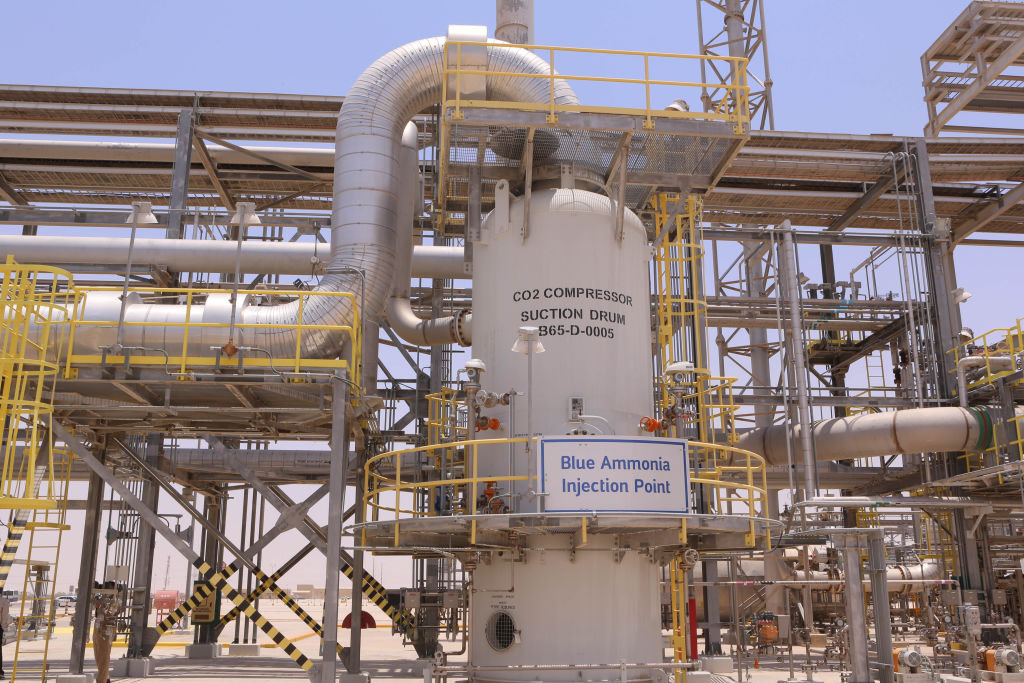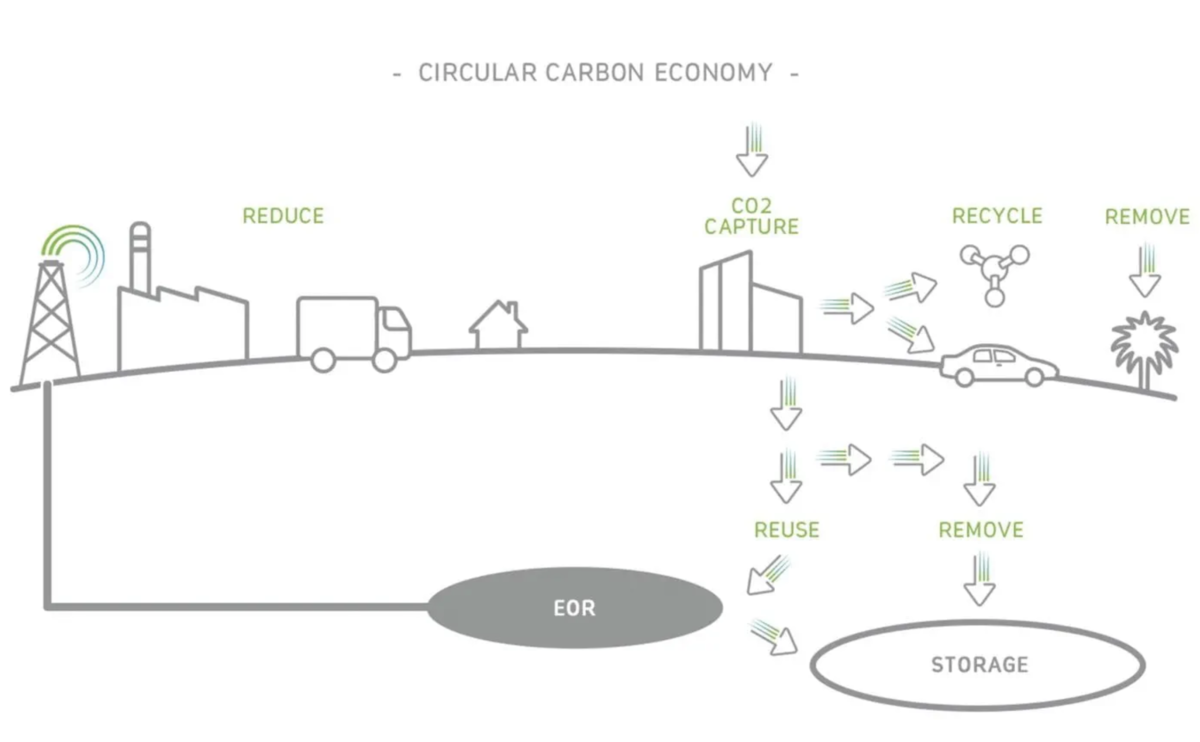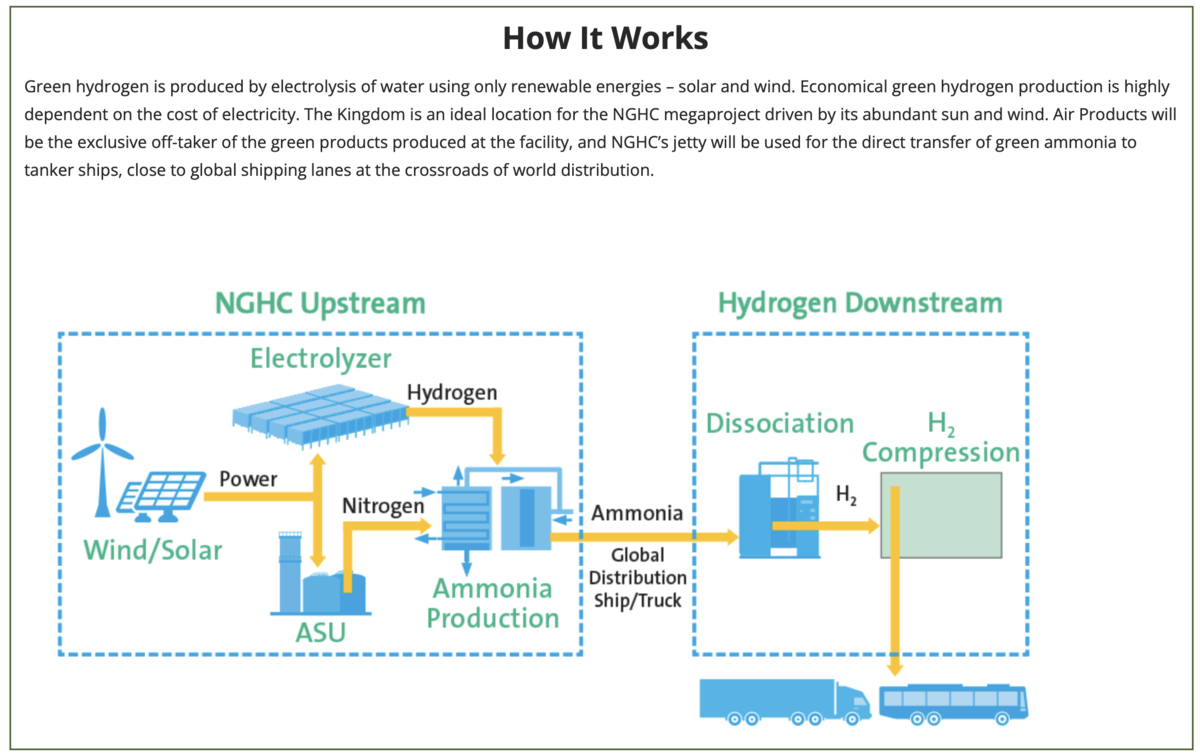RIYADH: As the world accelerates its shift toward cleaner energy sources, Saudi Arabia is positioning itself at the forefront of blue ammonia production, which is emerging as a key component in the global effort to combat carbon emissions and climate change.
Long a global leader in oil and gas, the Kingdom is now using its technological and economic prowess to lead in alternative energy, particularly blue ammonia, which has the potential to drive the global hydrogen economy and decarbonize hard-to-abate sectors.

Blue ammonia, or NH3, is a versatile chemical compound traditionally used in agriculture as fertilizer, as well as in various industrial processes. However, its appeal as a clean energy source is gaining momentum.
The production of blue ammonia involves capturing up to 90 percent of the carbon dioxide emissions generated during its manufacture, thereby significantly reducing its environmental impact. This makes it an attractive alternative to conventional fossil fuels, especially in industries that are difficult to decarbonize, such as shipping, aviation, and heavy manufacturing.
Saudi Arabia’s pivot to blue ammonia is part of its broader Vision 2030 reform agenda to reduce the Kingdom’s reliance on fossil fuels and expand its renewable energy capacity. This transition is also critical to its commitment to combat climate change and contribute to global efforts to reduce carbon emissions.

The blue ammonia injection point compressor at the Hawiyah Natural Gas Liquids Recovery Plant, operated by Saudi Aramco, in Hawiyah, Makkah province. (Bloomberg via Getty Images)
Under Vision 2030, Saudi Arabia aims to generate half of its energy needs from renewables and alternative sources, including hydrogen and blue ammonia, by the end of the decade.
The Kingdom will transition to natural gas and renewable energy sources in equal parts by 2030, Abdulaziz Almizani, Chief Advisor of Energy and Sustainability, told Arab News.
“Fifty percent should be by natural gas and the other 50 percent should be with renewables and alternative energy sources, hydrogen, and blue ammonia,” he said.
DID YOU KNOW?
Saudi Arabia is leading the clean energy transition through large-scale investment in blue ammonia, crucial for decarbonizing hard-to-abate sectors like shipping and aviation.
The Kingdom aims for 50 percent of its energy to come from natural gas and 50 percent from clean sources, including blue ammonia, by 2030.
Saudi Aramco and Ma’aden have already pioneered carbon-neutral ammonia exports, making significant strides in supporting the global hydrogen economy.
In addition to embracing blue ammonia production, Saudi Arabia is adopting the circular carbon economy model to manage and reduce emissions, incorporating what are known as the “4Rs” — reduce, reuse, recycle, and remove.
As part of this effort, the Kingdom is investing in carbon capture, utilization, and storage technologies to remove CO2 and convert it into useful products. Almizani highlighted Saudi Aramco’s role in pioneering these technologies, including the launch of a project that transforms CO2 into methanol.

Illustration courtesy of Aramco
Saudi Aramco has already become a key player in promoting the hydrogen economy, having shipped the world’s first carbon-neutral ammonia to Japan in 2020. This was a significant milestone for the global adoption of clean energy, marking Saudi Arabia’s emergence as a leader in blue ammonia production and export.
Furthermore, the Saudi Arabian Mining Co., or Ma’aden, is playing a pivotal role in these efforts, recently exporting 138,000 tons of blue ammonia to South Korea — one of the largest quantities approved globally.
Opinion
This section contains relevant reference points, placed in (Opinion field)
Despite the high cost of production and the need for technological adaptation, Almizani is optimistic that the costs associated with blue ammonia will eventually decrease, making it more accessible and scalable.
The Kingdom’s investment in clean energy is also reflected in its new developments, such as its smart city NEOM, which is set to host the world’s largest green ammonia plant by 2025, further solidifying Saudi Arabia’s commitment to becoming a global leader in both green and blue ammonia production.

Illustration courtesy of NEOM
Saudi Arabia’s efforts are also supported by a strong regulatory framework aimed at promoting clean energy. Almizani emphasized the importance of establishing regulations in the energy industry to encourage private sector participation.
The Kingdom’s adoption of blue ammonia as part of its energy mix not only aligns with its domestic goals but also contributes significantly to the global fight against climate change.
As blue ammonia production scales up and technological advancements make it more cost-effective, Saudi Arabia is well-positioned to emerge as a world leader in this critical area of clean energy, offering a blueprint for other nations seeking to transition away from fossil fuels.



































